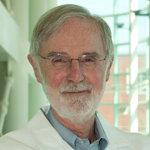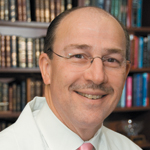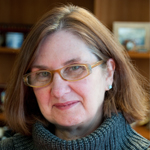Three Washington University in St. Louis faculty members are being honored this month by the Academy of Science of St. Louis: Marcus E. Raichle, MD; Timothy Eberlein, MD; and Linda S. Cottler, PhD.
The academy will also present the university’s Young Scientist Program with its Science Educator Award.
The mission of the Academy of Science of St. Louis is to “foster the advancement of science and encouragement of public interest in and understanding of the sciences.” The awards, which focus on individuals and institutions in St. Louis known worldwide for scientific contributions to research, industry and quality of life, will be given Wednesday, April 13, at a dinner at the Chase Park Plaza Hotel.

Raichle, professor of neurology, of radiology and of neurobiology, will be given the Peter H. Raven Lifetime Award in honor of his decades of pioneering work using noninvasive imaging to better understand human brain function.
Among Raichle’s major accomplishments is his lab’s discovery of brain regions now known as the default mode network. These regions become active when the brain is not actively engaged in a task. In recent studies, Raichle and his colleagues have found that brain regions in the default network are often among the first areas to be affected by Alzheimer’s disease. These changes may one day aid early diagnosis of Alzheimer’s disease.

Eberlein, the Spencer T. and Ann W. Olin Distinguished Professor and director of the Alvin J. Siteman Cancer Center at Barnes-Jewish Hospital and Washington University School of Medicine, will share the Science Leadership Award with Emerson. Eberlein is Bixby Professor and chairman of the Department of Surgery at the School of Medicine and surgeon-in-chief at Barnes-Jewish Hospital.
The award honors Eberlein’s work as founding director of the Siteman Cancer Center, which is a National Cancer Institute designated Comprehensive Cancer Center and member of the National Comprehensive Cancer Network. Under Eberlein’s leadership, it has become one of the largest clinical cancer centers in the country, treating more than 40,000 cancer patients each year.
Cottler, professor of epidemiology in psychiatry, will receive the Trustees Award, which is given for outstanding contributions to the Academy’s mission of promoting understanding and appreciation of science, engineering and technology.

Cottler is internationally known for her research and outreach on HIV prevention and drug addiction and her work developing reliable, widely used assessments for substance abuse, other psychiatric disorders and their risk factors.
In addition to her international work, she has worked in her hometown, St. Louis, implementing innovative outreach to community residents and agencies. Her work is helping these groups assess needs and concerns of the community, linking people to medical and social service referrals, developing culturally relevant prevention programs and interventions and making research more representative of the community.
Cottler’s programs are creating a model for re-engineering the country’s community engagement and clinical research programs.
Cottler will share the Trustees Award with Janey S. Symington, PhD, a retired molecular cell biologist who worked at Washington University for 20 years. Symington, who studied viruses, has been active in the academy for over 30 years. She has helped promote interest in world ecology and translational medicine. She also has been an active supporter of science education and career awareness for young women and was a founder of the Women’s Society of Washington University.
The Science Educator Award recognizes the work of the university’s Young Scientist Program (YSP). Founded by two Washington University MD/PhD students in 1991, the program is run exclusively by university graduate students, medical students and postdoctoral volunteers.
YSP is designed to attract high school students from disadvantaged backgrounds into scientific careers through activities emphasizing hands-on research and individualized contact between young people and active scientists. YSP initiatives include the Summer Focus program, which brings outstanding high school students to campus for paid summer internships conducting research in a topic they select.
YSP also organizes summer research experiences for teachers, brings hands-on science programming to kindergarten-12th grade classrooms and repurposes lab equipment and supplies for classroom use. YSP is a partner with the Academy of Science and other science education and outreach organizations in the region.